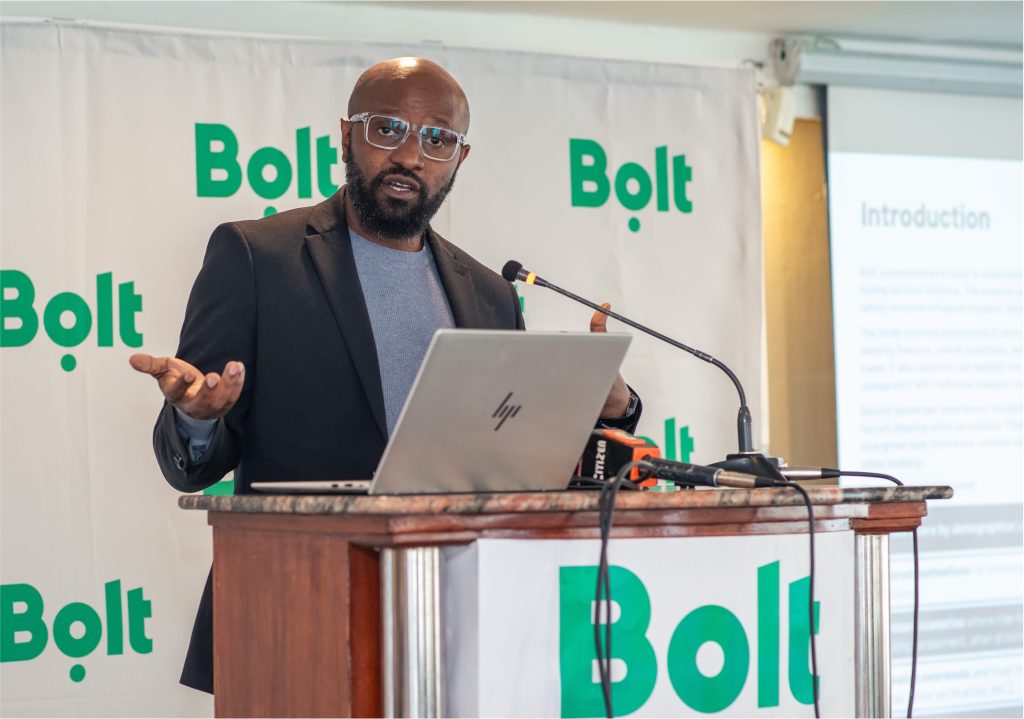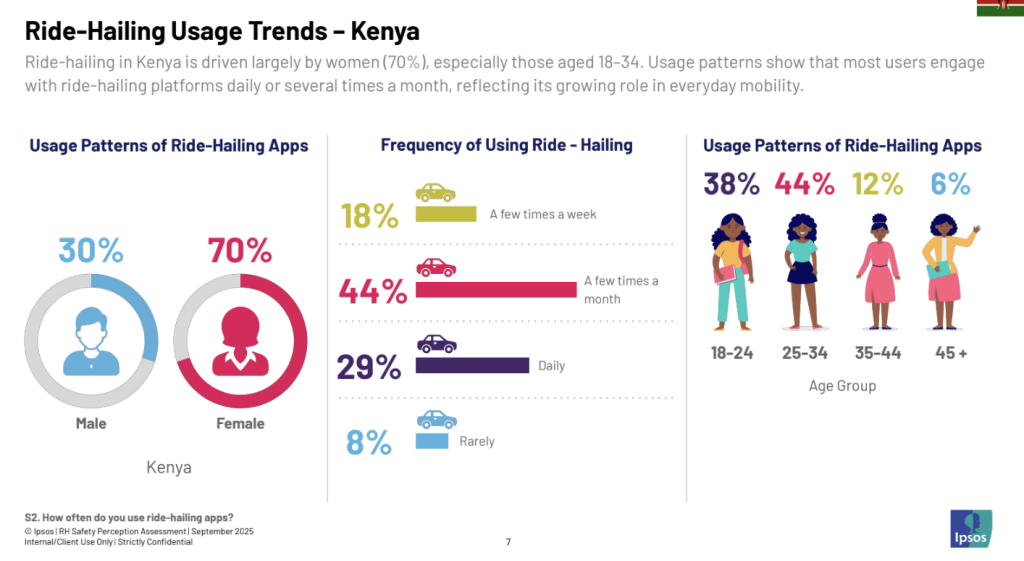A new Ipsos Safety Index, commissioned by Bolt, shows a major shift in how Kenyans perceive transport safety. The study reveals that 94% of ride-hailing users now believe platforms like Bolt are safer than traditional taxis and matatus. A signal of how technology continues to redefine everyday mobility choices.
The research surveyed 250 active users across Nairobi, Mombasa, Kisumu, and Nakuru. Respondents cited reliability, app-based safety tools, and a sense of control during trips as key reasons for their growing confidence in ride-hailing. The data points to a broader cultural change where convenience and safety increasingly go hand in hand.

Safety Preference
Women make up 70% of ride-hailing users in Kenya, most aged between 18 and 34. For this group, convenience [70%] and safety [57%] are top reasons for choosing ride-hailing.
Many said the ability to track rides, verify drivers, and share locations gives them peace of mind. Traditional transport rarely offers such.
Beyond individual comfort, the report links ride-hailing to safer community behavior. Nearly 80% of users believe these services have helped reduce drunk driving. They have offered quick, reliable rides home after nights out. About 64% said they’ve booked rides for others often when friends or relatives were unfit to drive. This shows how digital transport tools are influencing social responsibility.
“Safety isn’t just about avoiding harm, but preventing it through smart use of technology, data, and accountability.” Says Dimmy Kanyankole, Senior General Manager at Bolt.

She added that features like GPS tracking, trip monitoring, and in-app emergency tools have made passengers feel more in control.
Soyinka Witness, Strategy Director at Ipsos Sub-Saharan Africa, said the results highlight a “behavioral shift in how Kenyans approach urban mobility,” with ride-hailing seen as “not only convenient but safer and more responsible.”
Nearly all respondents [97%] said in-app safety features boosted their confidence. Driver verification was rated the most valuable [79%], followed closely by the SOS button [78%]. At night, 94% said ride-hailing feels safer due to real-time tracking and flexible drop-off options.
As Kenya continues to digitize its transport ecosystem, the report suggests that ride-hailing is becoming more than just an alternative it’s setting new standards for safety, trust, and responsible mobility across cities.






